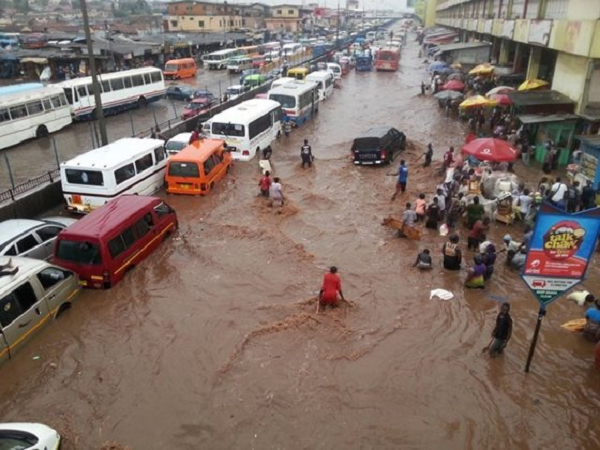
How ready are we for the rains?
Once again the rainy season is with us and there is very little we can do to stop the rains, whether we like them or not. Meanwhile, since the rains will come, how to manage them from causing harm and havoc to the citizenry and society is what must remain our focus.
Advertisement
Year in, year out it appears we sit and wait for the rains to cause pain and anguish to individuals and the whole society.
Clearly, the fight against perennial flooding, particularly in Accra, has been a herculean challenge with no possible solution in sight.
Let there be two or three hours of rainfall in parts of Accra and many areas will be inundated with water and residents, particularly those living around the Kwame Nkrumah Interchange, Adabraka, Alajo, Kaneshie and Nima will be left counting their losses.
We do not want to remind ourselves of the painful experiences of June 3, 2015 when the twin disaster of fire and flooding claimed some 159 lives.
The Odaw River, which must be constantly dredged, always breaks its banks, with excess water spilling into nearby homes and business outlets.
It is against this background that the Daily Graphic expects the authorities and all stakeholders to be up and doing immediately to save the city from the annual ritual of flooding now that the season of rains is almost with us.
This year, the Ghana Meteorological Agency has warned that the rains may come early in March or April and this is the more reason we cannot leave anything to chance but rather work assiduously to overcome the challenges we face any time it rains.
Fortunately, the Accra Metropolitan Assembly (AMA) has, in partnership with the Regional Coordinating Council (RCC), put together a scheme to clear a number of drains within Accra of silt ahead of the rainy season. (See story on front page.)
Immediately, we must begin to sustainably clear the choked gutters, while people staying at waterlogged areas and low ground should be sensitised well in advance as to what to do in case of flooding.
The public must also be educated to avoid fast flowing water, move from lower ground to higher places, if need be, and call emergency lines.
This is the time for emergency lines to be made known to everybody, not when people find themselves in distress.
The Police Service and the National Disaster Management Organisation (NADMO) must also ensure that the laws of the land are strictly enforced to minimise or curb abuses.
We need to grow socially responsive citizens. This is necessary because the silting of the Odaw channels is worsened by bad waste management practices and attitudes.
Solid waste discharged into drains impede water flow during rainstorms and force the drains to overflow their banks into adjacent low-lying lands.
Informal and uncontrolled housing development is also to be blamed for the perennial floods in Accra.
We cannot look on unconcerned; to build a smart city requires sustainable measures backed by laws that work.




